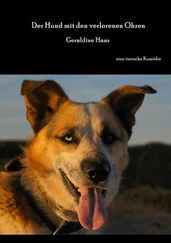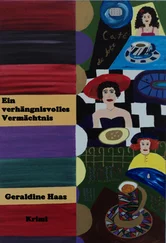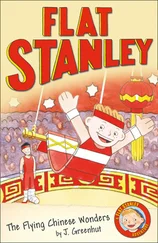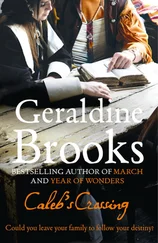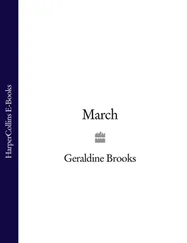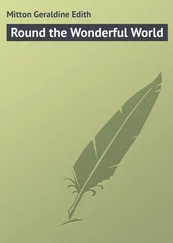He was springing from stone to stone, waving his arms wildly to keep his footing as he chased the darting, blue-bodied dragonflies. As I watched, one alit on a branch near my hand. The glassy panes of her wings caught the light in rainbow colours, like the stained windows in our church. I laid a finger softly on the twig and could feel the swift shivering and hear the faint hum from her vibrating wings. Then she took off, swooping down upon a passing wasp. Her legs had seemed flimsy as threads, but they snapped around the wasp like an iron trap. Still in flight, her powerful jaws closed on the insect and devoured it. So it goes, I thought idly. A birth and a death, each unlooked for.
I leant back against the stream’s bank and closed my eyes. I must have dozed for a moment, or otherwise I surely would have heard the tread of boots coming through the trees. As it was, he was almost upon me when I opened my eyes and met his, lifted from the open book he carried. I jumped up, fumbling and tugging at my bodice. Tom opened his pink mouth and howled indignantly at the interruption to his feeding.
The rector raised a hand and smiled kindly. ‘He is quite just to protest my intrusion. Do not discompose yourself, Anna. I’m sorry to have startled you, but I was so lost in my book, and in the loveliness of this day, that I was not aware there was anyone else in the copse.’
I was too surprised and mortified by the rector’s sudden appearance to make any civil reply to him. To my further astonishment, he did not walk on then, but sat down upon a neighbouring rock and pulled off his own boots so that his feet, too, could dandle in the rills. He reached down into the clear water and cupped his hands, splashing the coolness onto his face and then running his fingers through his long, black hair. He lifted his face up to the dappled sunlight and closed his eyes.
‘How easy it is to feel the goodness of God on such a day!’ he whispered. ‘Sometimes I wonder why we shut ourselves up in churches. What can man make, after all, that evokes the Divine as a place such as this?’
I maintained my stupid silence, unable to quiet my mind to think of any answer. Tom continued to cry loudly. Mr. Mompellion looked at him, squirming in my arms, and then reached across to take him from me. Surprised, I gave him over, and then was even more surprised at the practised way that Mr. Mompellion held him, up against his shoulder, firmly patting him on the back. Tom stopped crying almost at once and let forth a huge, wet belch. The rector laughed. ‘I learned from caring for my little sisters that one who is neither mother nor wet nurse must hold a babe so, upright, so that it ceases to search for the teat.’ I must have looked amazed at this, for Mr. Mompellion glanced at me and laughed again. ‘You must not think that a minister’s life is lived entirely among lofty words spoken from high pulpits.’ He inclined his head to where Jamie, downstream from us, was so engrossed in building his stick dams across the stream that he had barely raised his head to register the rector’s presence. ‘We all begin as naked children, playing in the mud.’
At that, he handed Tom back to me, rose, and made his way downstream towards Jamie. Halfway there, he set his foot on a moss-slicked stone. His arms fanned in crazy circles as he tried to regain his balance, and Jamie jumped up in the water, laughing with the wild, uncouth mirth of a three-year-old. I frowned and glared at Jamie, but Mr. Mompellion threw back his head and laughed along with him, splashing the few yards left between them with his hands outstretched to grab my squealing little boy and toss him high into the air. The two of them played so for a time, and then Mr. Mompellion turned back towards me and Tom and settled himself once more on the bank near us. He sighed, and closed his eyes again, his lips curved in a slight smile.
‘I pity those who live in towns and do not learn to love all this – the sweet scent of wet weeds and the ordinary, daily miracles of creation. It was of these I was reading when I interrupted you. Would you like to hear some words from my text?’
I nodded, and he reached for his book. ‘These are the writings of Augustine of Hippo, a monk who grew great in his theology long ago on Africa’s Barbary Coast. Here he asks himself what we mean when we talk of miracles.’
I can recall only snatches of what he read. But I do remember how his voice seemed to blend with the cadences of the stream and give the words an enduring music. ‘Consider changes of day and night…the fall of leaves and their return to the trees the following spring, the infinite power in seeds…and then give me a man who sees and experiences these things for the first time, with whom we can still talk – he is amazed and overwhelmed at these miracles.’
I was sorry when he ceased reading, and would have asked him to go on, if I had not been struck silent by awe of him. For though I worked every day in his house, it was only with his wife that I had easy communication. It was not that he was harsh in manner by any means, but he often seemed so lost in large matters that he did not notice the small doings of his household. I tried my best to come and go and do my tasks without distracting him, and I can say with some pride that there were very few times that he had had cause to notice me. And so I sat there, mute and meditating, and he must have taken my distant look for vacancy or boredom, for he stood up all of a sudden and reached for his boots, saying that he had imposed upon me quite enough and must be about his business.
At that, I did find a small voice in which to thank him most sincerely for his consideration in sharing these great thoughts with me. ‘For it is wonderful to me that a lofty thinker such as this should have so close a communion with the ordinary things of the soil and of the seasons.’
He smiled kindly. ‘Mrs. Mompellion has spoken to me of your understanding. She believes it is superior, and I see it may be so.’ He took his leave then and turned back towards the rectory. I lingered there with the children for a while, thinking that what was true of Augustine was true also of our minister, and what a strange thing it was to have such a man, so open and so kindly, in our pulpit.
At last, I called to Jamie and we, too, set our feet on the path for home. All along the way, Jamie kept darting off like a swallow, swooping down to pluck the blowsy, late-blooming dog roses. When we neared the cottage, he made me wait by the door while he ran on inside. ‘Close your eyes, Mummy,’ he cried excitedly. Obediently, I waited, my face buried in my hands, wondering what game he was devising. I heard him thump up the stairs, scrambling, as he did when he was in a hurry, on all fours like a puppy. A few moments passed, and then I heard the upstairs casement creak open.
‘All right, Mummy. Now! Look up!’ I tilted my face and opened my eyes to find myself in a velvet rain of rose petals. The soft, sweet-scented shower brushed my cheeks. I pulled off my cap and shook out my long hair and let the petals land in its tangles. Little Tom gurgled with joy, his fat fists batting at the bright cascade of pink and creamy yellow. Jamie leant out over the sill above me, shaking the last few petals from a corner of sheet.
‘This,’ I thought, smiling gratefully up at him, ‘this moment is my miracle.’
And thus we passed the wondrous days of our reprieve, and I busied myself in preparation for a winter that was hard to conceive of on those heavy afternoons, when the bees buzzed into hives that brimmed with the heather-scented honey. There were apple ladders poking through the trees and tripods going up all around, waiting for a day cool enough for the hog butchering. Though we had none of our own swine, I always helped my neighbours the Hadfields in return for a portion of bacon. Alexander Hadfield was a fastidious man who preferred cutting cloth to hacking at flesh and bone and would not soil even his second-best suit of clothes in any manner of outdoor work. So Mary’s eldest by her first husband would do the slaughter and the butchery. Jonathan Cooper was a big lad like his late father and made short work of it, while his little brother Edward ran about with Jamie, finding ways to shirk the small chores we laid on them. Every time we sent them to fetch a bavin to keep the cauldron boiling, the two of them would disappear behind the woodpile, howling with delight over some new game they’d invented. Finally, Mary left off washing the guts for the sausage casings and went to see what manner of mischief they’d devised themselves. She came back with one hand occupied in holding Edward by the ear and the other extended as far in front of her as possible, dangling something, glossy and black, tied to the end of a string. As she drew closer I could see it was a dead rat, a sorry little corpse, all wet and rheumy-eyed with a smear of bright blood about its muzzle. Behind her, Jamie walked sheepishly, dragging another such. Mary flung the one she carried into the fire, and at her prompting, Jamie reluctantly did the same.
Читать дальше


